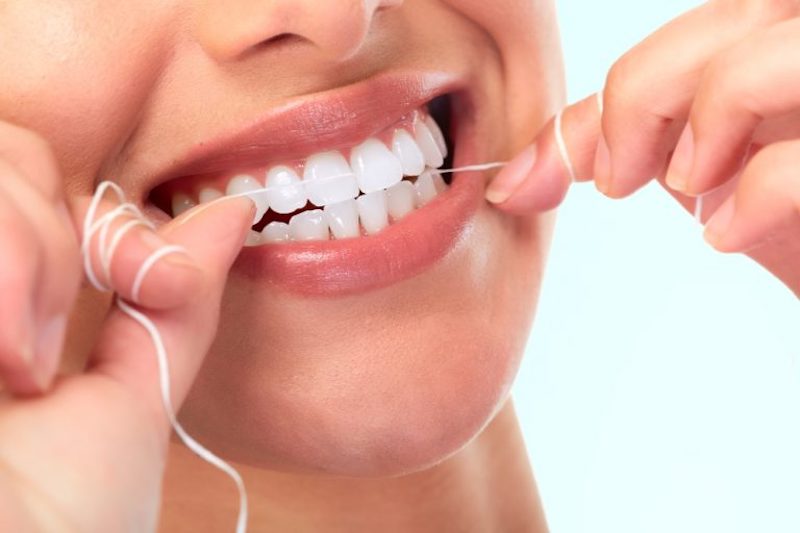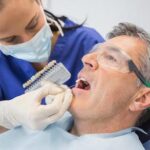
Keeping your mouth, gums, and teeth healthy is important. It’s not only important to maintain a stunning smile but it’s also essential for your overall health. Numerous studies have confirmed the association between oral health and overall health. When you follow a great oral hygiene routine, you can reduce the build-up of bacteria on your teeth. Failing to brush and wash away bacteria can lead to plaque (calculus) formation, which eventually leads to cavities and tooth decay.
Getting your teeth checked at the dentist at least once a year is also an important step to prevent tooth damage and gum disease. Your dentist will be able to take a closer look at what’s going on in your mouth and provide expert advice to avoid future problems. There are also several different things that you can do in your daily routine at home to maintain great dental health. Simple things like brushing your teeth, using dental floss, and avoiding high-sugar foods can minimize tooth decay and remove calculus at home. Here are some of the best things that you can do to improve your dental health from the comfort of your own home.
Brush Your Teeth Twice a Day
Most of us know that we should be brushing our teeth twice a day, once in the mornings and once in the evenings. These recommendations come from The National Institute for Health and Care Excellence (NICE).
Forgetting to brush every so often won’t be detrimental to your oral health but doing so multiple times a month could start to have negative effects. When you don’t brush your teeth, your risk of cavities increases because the bacteria that causes plaques is not being brushed away.
Most toothpaste contains fluorides and other beneficial ingredients that can enhance the strength of your tooth enamel. Brushing your teeth with minty toothpaste can also help to keep your breath smelling fresh and delightful. When brushing, make sure to get every surface of every tooth, your gums, and your tongue so that the bacteria are washed away from every area in your mouth.
Use Mouthwash After Brushing Your Teeth
Mouthwash is ideal to wash away any bacteria that you might have missed while brushing. Mouthwash contains beneficial ingredients that power through plaque and freshen your mouth. It will also wash over your gums and keep them clean, reducing the risk of gum disease.
Swill mouthwash around your mouth for around 30 seconds after brushing so that it coats all of your teeth and washes away any stubborn bacteria. Make sure you don’t swallow your mouthwash. It might taste minty and delicious but it should not be ingested! You can get basic mouthwash from any store but if you want a more specific recommendation for your needs, speak to your dentist and get their expert advice.
Avoid Eating Sugary Foods
Foods that contain high amounts of simple sugars can be harmful to your teeth in the long run. Sugar is one of the most well-known causes of tooth decay and cavities. Bacteria love to feed off the sugar that is left on your teeth after a sugary meal. If you don’t brush the sugar and bacteria away shortly after eating, the bacteria can build up on your tooth enamel and start to harden into tough plaques.
Over time, these plaques cause the breakdown of your tooth enamel and this leads to more serious dental issues. By reducing the amount of sugar that you consume, you can improve your dental health and reduce your risk of oral health issues.
You don’t need to completely cut out all sugar-containing foods. You can still enjoy chocolate, chips, candies, and sodas. However, it’s important that you cut back on the amount of these sugary foods and drinks that you consume if you want to protect your teeth. When you consume high-sugar foods and beverages, make sure to brush your teeth shortly after to prevent the build-up of bacteria.
Floss at Least Once a Day
Dental floss is something that many people dismiss. If they’re brushing their teeth, do they really need to use floss? The answer is yes! Dental floss can get into the tiny gaps between your individual teeth to remove hidden bacteria that have managed to escape your toothbrush. If you don’t remove the hidden bacteria, they can multiple and start to attack your tooth enamel and your gums, leading to poor oral health.
- How To Boost Your Confidence on a First Date - February 23, 2024
- 5 Must-Try Fashion Trends for 2024 - February 14, 2024
- 12 Must-Have Items for Your Daughter’s Gift Basket - November 28, 2023






